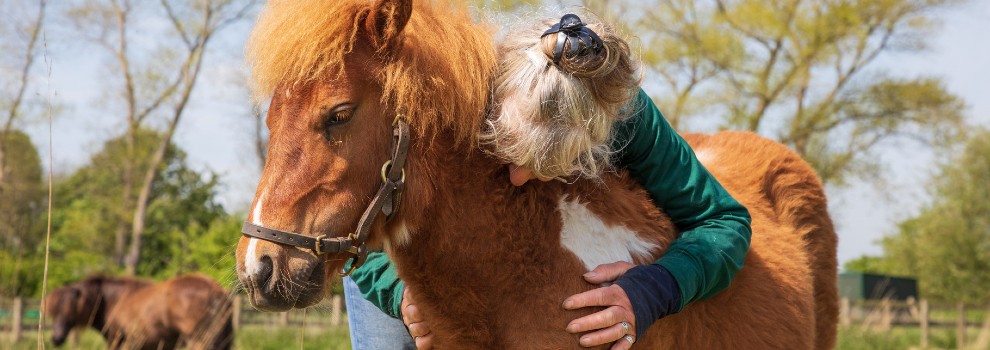- Find a Pet
- Advice and Welfare
- Ways to Give
- Get Involved
- What We Do
- Search
- My RSPCA
- Report a concern
- Gift in Wills
-
Colour modeVivid Calm
- Home
- Advice and welfare
- Pets
- Horses
- Health and welfare
- Poisoning
Poisoning in horses, ponies and donkeys
If you suspect that your horse has been poisoned, it's best to stay calm and contact your vet immediately - never watch and wait. Here's more on what you should do and how to keep your horse safe.

If you think your horse has been poisoned
- Stay calm - take your horse away from the source of poison.
- Contact your vet immediately - tell them where and how it happened. If possible, you can carefully take the packaging, plant or substance to the vet, but only if you can do this safely.
- Follow your vet's advice - if you're advised to take your horse to the vet, do so quickly and calmly.
Here are a few things to remember:
- Never try to treat or medicate your horse yourself. Some medicines for humans and other animals may be poisonous to your horse.
- If their skin or fur is contaminated, wash it with mild shampoo and water, rinse well and dry.
- Keep your horse away from any other animals to avoid cross-contamination.
Never 'watch and wait' if you suspect poisoning - act fast and contact a vet immediately.
Signs of poisoning
Symptoms of poisoning in horses may include:
- Abdominal pain
- Constipation
- Diarrhoea
- Straining
- Rectal prolapse
- Weight loss
- Restlessness
- Unsteadiness
- Blindness
- Breathing difficulties
- Head pressing
- Problems swallowing
- Lethargy
- Tremors
- Twitching and fitting
- Collapse
- Loss of appetite
- Colic
- Depression
- High temperature
- Laminitis - an inflammation of the laminated tissue that attaches the hoof to the foot
Symptoms may not appear immediately or may develop rapidly. Some horses go on to develop kidney or liver damage, and they can die suddenly.
Keeping your horses safe from poisoning
To make sure your horses stay away from potential poisons:
- Poisonous plants: ensure all areas are free from, and not overhung by, poisonous plants.
- Water: ensure their water can't become contaminated, and change it regularly.
- Pesticides: when using pesticides, such as rodenticides, in or around housing and exercise areas, keep your horses away from them.
- Enough food: give them enough food and forage, to reduce the chances of them wanting to eat other vegetation. Make sure it's suitable for horses, as some feeds intended for other animals may not be appropriate for them.
- Visitors: make sure riders, carers and visitors know about potential poisonous hazards to your horses, and don't let them feed them unsuitable foods.
Read more about some of the most common horse poisons.
Acknowledgement for this information is made to the Veterinary Poisons Information Service (VPIS).



